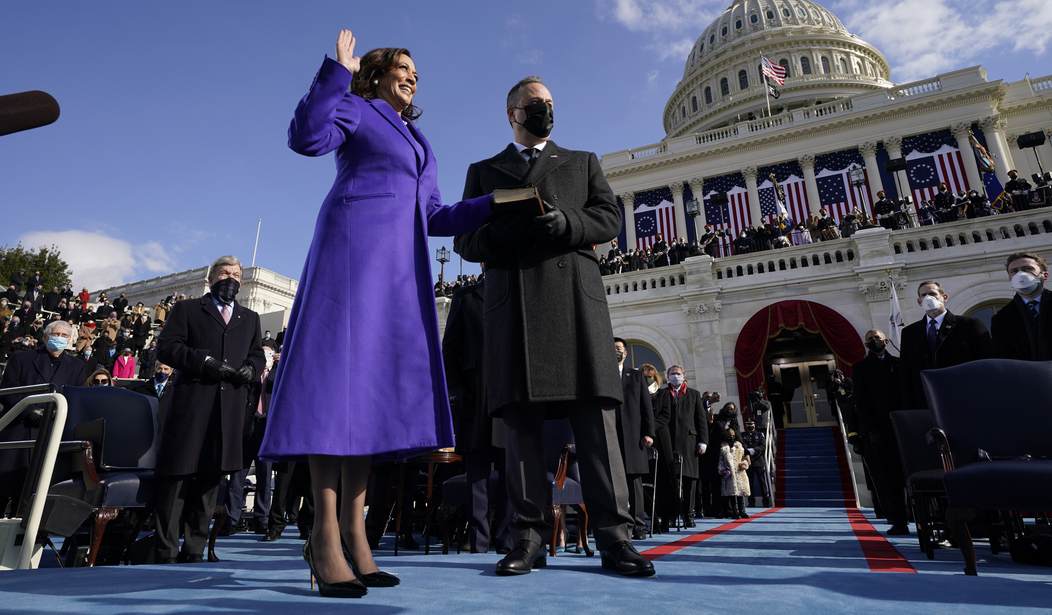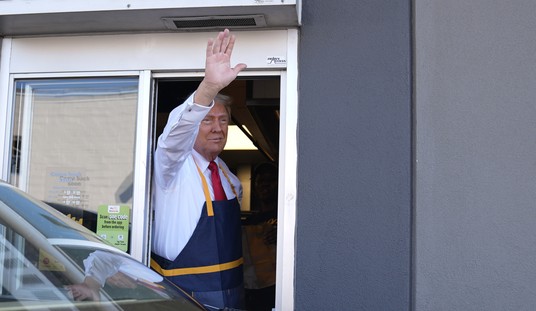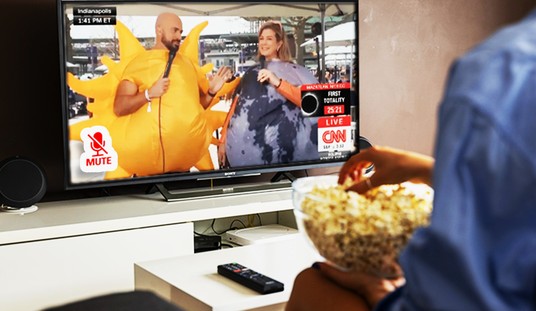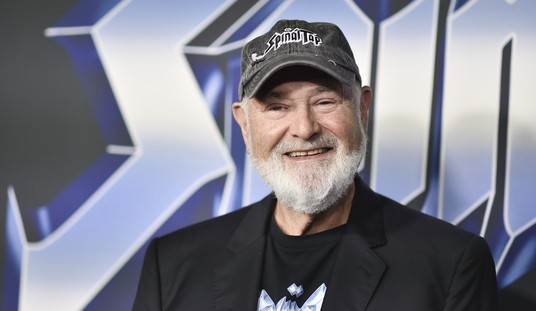Perhaps it’s through my common-sense upbringing in the working class in Pittsburgh. Perhaps it’s through being lucky enough to be a scholarship kid at some of the best schools in America (hat tip to school choice, especially as we celebrated self-determination in education this past week). Either way, I’ve had a chance to lean on a few axioms in my life to guide the way.
Two of those guideposts? Never feed the animals at the zoo and never read the comment section of op-eds. (And, in some instances with the right writer and the right content, those two can be one and the same.)
Listen: I get it – I’m not a lot of folks’ favorite.
I’m not Kira Davis, the rock-star, do-it-all that is everywhere from RedState to a nationally-renowned podcast to an emerging TV show. I’m not Jeff Charles, Mr. Breaking Conservatarian himself – and he’s the Black Han Solo.

Jennifer Oliver O’Connell is a rising writer on RedState, penning witty and thoughtful pieces such as her recent op-ed: Black Intellectuals Are Not Impressed. Christopher Arps just appeared on Newsmax and serves on the Project 21 board.
And where their opinions and insights are valid, often profound, and always sincere, this is a good time to listen to your least favorite cousins as we approach that time of the year.
Yes: Black History Month is upon us.
And before some of us go into the expected retorts including “…why is there a Black History Month when there is no White History Month…” and “…I don’t believe in a hyphenated America…if we just stopped talking about race, it wouldn’t be a problem anymore..”, I figured that I should prepare you:
This Black History Month might end up being one of the most blackily-black Februarys that we’ve seen in quite some time.
Trump is out of the White House. Kamala Harris is the Vice President. Black voters pushed Georgia to the Democrats in multiple US Senate races. Everyone from progressive mayors in Pittsburgh to state lawmakers felt the frustration coming from Americans on issues pertaining to Black life in America. 2020 changed a lot of perspectives – in both good and bad ways – on issues of inequality and race.
I know that it’s going to make a lot of folks feel uncomfortable. I know that a lot of people might ask “…why can’t they protest using the example of Dr. Martin Luther King and non-violence…” (which I personally extol) or “…what else could be done because I personally don’t see racism as a problem in America…” (most of us see the issue very differently based on who we are). Yet, as we move through that discomfort to a place where equality is a reality, I am asking that those facing this “discomfort” consider four things as we move through these 28 days.
It’s been over 60 years since the rise of MLK’s career
I understand and I agree: Dr. King was an iconic figure that changed the world, not just America. And yet, it’s quite easy for many of us to forget that King’s ascent through the Montgomery Bus Boycott occurred over 60 years ago. Even as the Black Lives Matter Movement has been nominated for a Nobel Peace Prize, it’s been almost 60 years since Dr. King won the prize for his civil rights leadership. Presidents Johnson and Nixon pushed through civil rights legislation in the 1960s and 1970s, roughly a decade before Atari became a household name. Many others have taken up the civil rights cause. Heck – even Barack Obama’s ascent from state senator in 2004 to US President in 2009 is approaching twenty years ago. And yet, Black unemployment rates have stubbornly remained at roughly twice the rate of White Americans since at least the 1970s, despite the infamous claims on jobs over the past few years. Inexcusable gaps remain in education attainment, including college completion. Horrible criminal justice and welfare policies prompted mass incarceration that wrecked generations of Black families. The economic divide is about the same as it was during another turbulent year in American history: 1968. Which leads to…
Race relations have never really been “good”, and they always get worse when healthcare disparities are highlighted…and now couple that with particularly hard economic times, and here we are
1968 was leading to more change for equality, but then both MLK and RFK were killed. Gov. Wallace was a serious presidential candidate after defending segregation for years in a very defiant and public manner. It was also in the early days when the sentiment, “…when the looting starts, the shooting starts…” became a well-known phrase.
Afterward, the malaise of the 1970s hit. Affirmative Action – meant to close the racial inequalities found in various aspects of American society – was met with fierce pushback during instances including the school busing (an issue that was meant with bi-partisan angst). Blue-collar jobs such as steel-producing jobs and within the car industry eroded away, taking Black access to the middle class with it. Soon after, the crack epidemic took over once-proud Black communities.
Black people are tired, folks. Tired of the disparities and tired of being overlooked, undervalued, and under-appreciated for their perspectives and their legitimate concerns. And after continued disparities that have heightened during COVID-19 (such as economic woes and healthcare chasms of care including a Black doctor losing her life to racism and the disease) are coupled with the rise in police-community tensions from both policies such as stop-and-frisk and direct police misconduct?
You get people that are increasingly frustrated and impatient for not having access to the promise of constitutional equality and real-life opportunities. They become increasingly contemptuous towards the legacy of redlining that permeated for decades in the real estate market (as fostered by policy and social mores) that has led to the wealth gaps found in America today as well as the broken public education system that has led to resegregation in public education based on zip codes. They become increasingly angered by the de-feminization and dehumanization of their heroes such as former First Lady Michelle Obama – decades after Dr. King’s career. They become disillusioned when chronic offenders are cheered as heroes such as George Zimmerman.
When the actions of a nation do not live up to the promises of their foundation, there will be a crack in faith, hope, and stability at some point. We saw it grow and it will grow even more in 2021 – with Black History Month as a reflection point.
But it’s not a shock, because…
Like oil and water, America and any civil rights movement in America have never been a good mix
Here is a harsh but deep truth: there has never been a time when a civil rights movement in America has been embraced by Americans collectively with a perspective that leans on our Constitution and not on our collective emotions. The only revered civil rights leaders are generally either outdated heroes or dead ones – or, in many instances, likely both.
US veteran Medgar Evers, shot in his driveway. Fred Hampton, shot emerging from his bed. Frederick Douglass the outspoken abolitionist, living in the shadows of the Fugitive Slave Act until his freedom could be purchased after fleeing to lecture in Europe for 18 months. Malcolm X. James Meredith. Wilmington 1898. Tulsa 1921. Bloody Sunday 1965. An African-American Nobel Peace Prize Winner, after taking a rock to the head. Black soldiers’ patriotism in World War I led to a resurgence in the Klan. Abolition led to a Civil War.
To many younger African-Americans, those filled graves are increasingly being filled in vain, especially as they want the late Laquan McDonald shot and killed on video, only to watch the incident covered up by a big-city mayor and police force for months. Jordan Miles won a lawsuit for police brutality, only to lose his soul for years afterward. Sandra Bland died over a turn signal. Jonathan Ferrell died because he got into a car accident and was looking for help.
The pursuit of progress to obtain racial equality in all instances of American life has been scarred with the pouring of the blood of people of African descent since the inception of this nation. In fact – sad but true – there have not been 15 minutes of true racial peace and harmony in the United States of America at any point in time of our collective history. Couple this with the reality that those fighting for civil rights and equality in America (by way of our Constitution, a document that recognizes God as the arbiter of rights, not the racists among us) are rarely, if ever, respected as invested Americans and collaborated with as partners in society. It’s not a shock that this year might end up being more explosive than last year if stability, unity, and equality are not paramount to us all.
Speaking of leaders and how we collectively can change…
Many of us revere Black puppets and do not respect Black people
No: it’s not all of us that do it. Many of us collectively have a genuine love for all mankind as brothers and sisters, united in humanity and blessed by the commonality of our American heritage. At the same time, there are also too many of our fellow Americans that believe racial equality equates to an exercise of marionetting a Black image that purports the most ignorant, uneducated, unhealthy, and unhelpful images and rhetoric to heal our long-lasting racial divide. Even Dr. King’s legacy has been manipulated by many to meet the demands of comfort instead of speaking to today’s uncomfortable truths. Too many of us would rather have a pretty face that says what we believe than a veracious voice that both truth and togetherness. The masses of Black people reject the failures of the decades-long approaches but cannot cross over to new approaches because of the continued desire by many to insult through comforting caricatures rather than truly embrace the content of one’s character – even if that character proves valid yet at odds with our own.
Sadly, what will be most likely overlooked – again – during this Black History Month (as the focus will be on VP Harris or BLM or something else distracting) is that Black folks are desperate for something better – and they want it now from all sides. They want accountability now – starting this Black History Month. If we deliver better, they will listen and partner differently.
An old civil rights leader years ago once told me that during our flight’s descent after a civil rights trip. Yet, he also added, “…however, Mr. Lenny, it seems that you are focused on the equality and the Constitution, but too many of your kind are focused on Confederacy.”
Take this in: Never once, in the years 1860-1865, was this flag ever paraded in the halls of the American capitol. pic.twitter.com/NFFVM0aSY0
— Sam Wineburg (@samwineburg) January 6, 2021
Last month, he wasn’t wrong.
This Black History Month, we all must prove that sentiment wrong. I gave you some background for you to understand what you will hear over February. Anticipate it. Expect it. Then, let us be the leaders to fix the challenges so we don’t have to hear the same thing ever again.












Join the conversation as a VIP Member